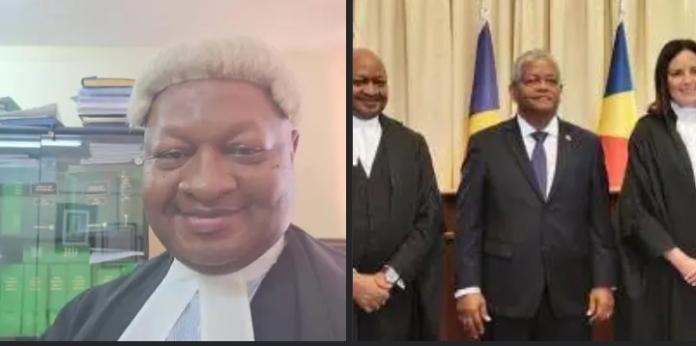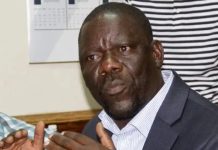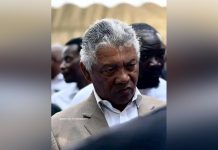Africa-Press – Zambia. LUSAKA, Zambia – Former Court of Appeal Judge, Hon. Justice Dominic Yeta Sichinga, SC, has lodged an originating summons with the Constitutional Court of Zambia seeking an interpretation of Article 142 (6) of the Republican Constitution. The case, registered as 2025/CCZ/0030, raises essential questions concerning the constitutional criteria for judges accepting appointments to roles outside the Zambian Judiciary.
Justice Sichinga, represented by Messrs. Likando Kalaluka & Co., resigned from his position as Judge of the Court of Appeal on 31 March 2025, following his appointment as a Non-Resident Judge of the Seychelles Court of Appeal. In his affidavit, Justice Sichinga explained that his new role in Seychelles is not full-time and requires him to preside over cases only three times annually. However, he felt compelled to resign because of the provisions of Article 142 (6), which state: “Where a judge is appointed or assigned to an office, which is not an office in the Judiciary and that judge wishes to take up the appointment, the judge shall resign from the office of the judge.”
Justice Sichinga’s application highlights a perceived inconsistency in the application of Article 142 (6). He noted that several senior court judges in Zambia have accepted roles outside the judiciary, such as serving as Commissioners to the African Commission, Rapporteurs for the African Committee of Experts on the Rights and Welfare of the Child, members of the SADC Administrative Tribunal, and lecturers at the Zambia Institute of Advanced Legal Education (ZIALE), among others, without resigning from their judicial posts
The summons seeks clarity on whether Article 142 (6) requires resignation for judges accepting part-time or one-off appointments to roles outside the Zambian Judiciary. Justice Sichinga argues that the interpretation of this provision is of “fundamental constitutional importance,” given the resignations of judges like Lady Justice Nicola Sharpe-Phiri, who also stepped down from her position as a Judge of the Court of Appeal after accepting a similar appointment in Seychelles.
The affidavit further highlights the challenges faced by the Zambian Judiciary, including understaffing, as evidenced by recent recruitment advertisements and opposition from stakeholders such as the Legal Resources Foundation Limited, which has petitioned the court to challenge the constitutionality of the recruitment process.
Justice Sichinga’s legal team had previously written to the Attorney General, State Counsel Mullio Kabesha, seeking the State’s position on the interpretation of Article 142 (6).
The case is likely to have far-reaching consequences for the judiciary and the interpretation of constitutional provisions relating to judicial appointments. The Attorney General has 14 days to respond to the summons. The legal community and the public await the court’s ruling, which will set a precedent for future judicial appointments and resignations in Zambia.
For More News And Analysis About Zambia Follow Africa-Press







